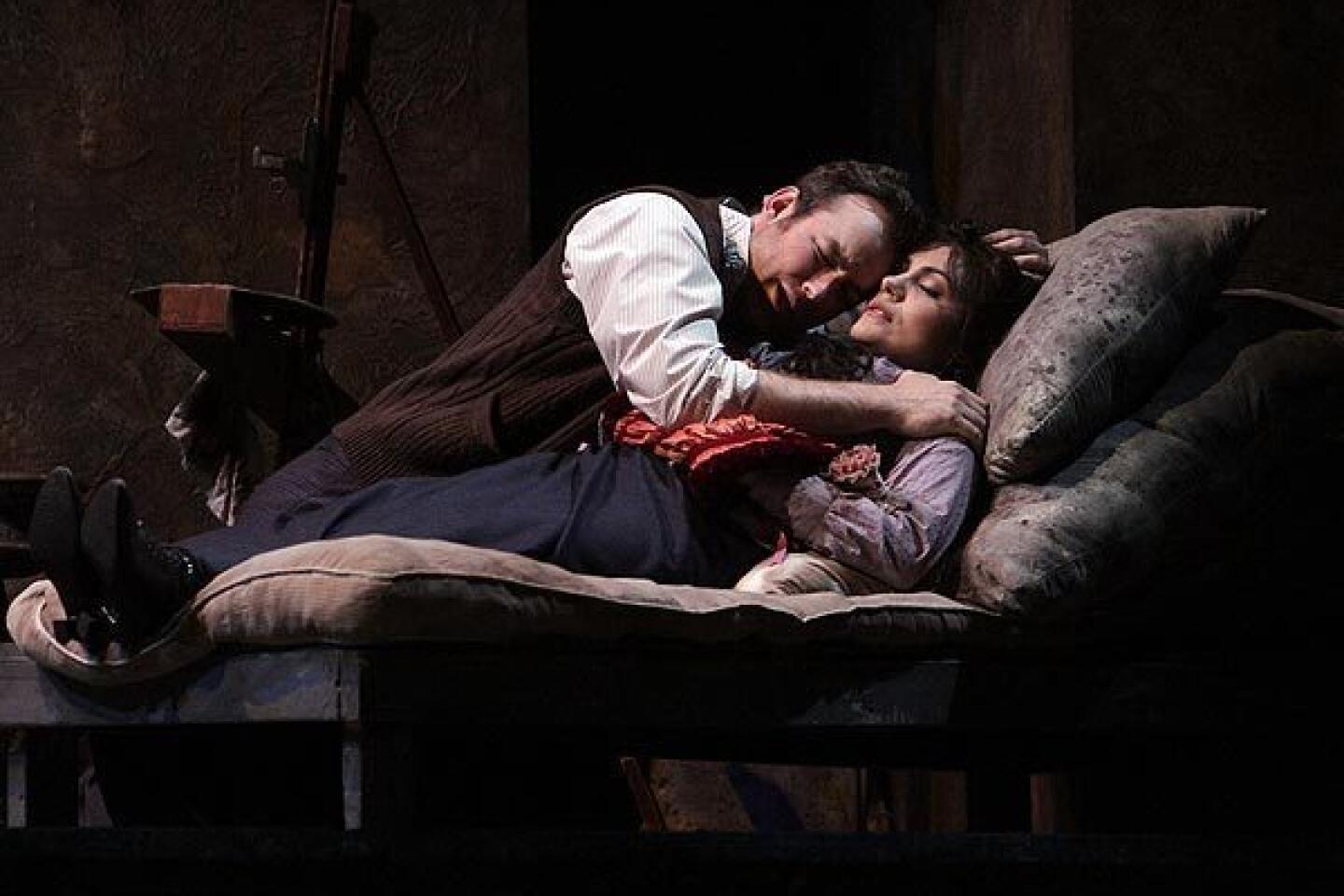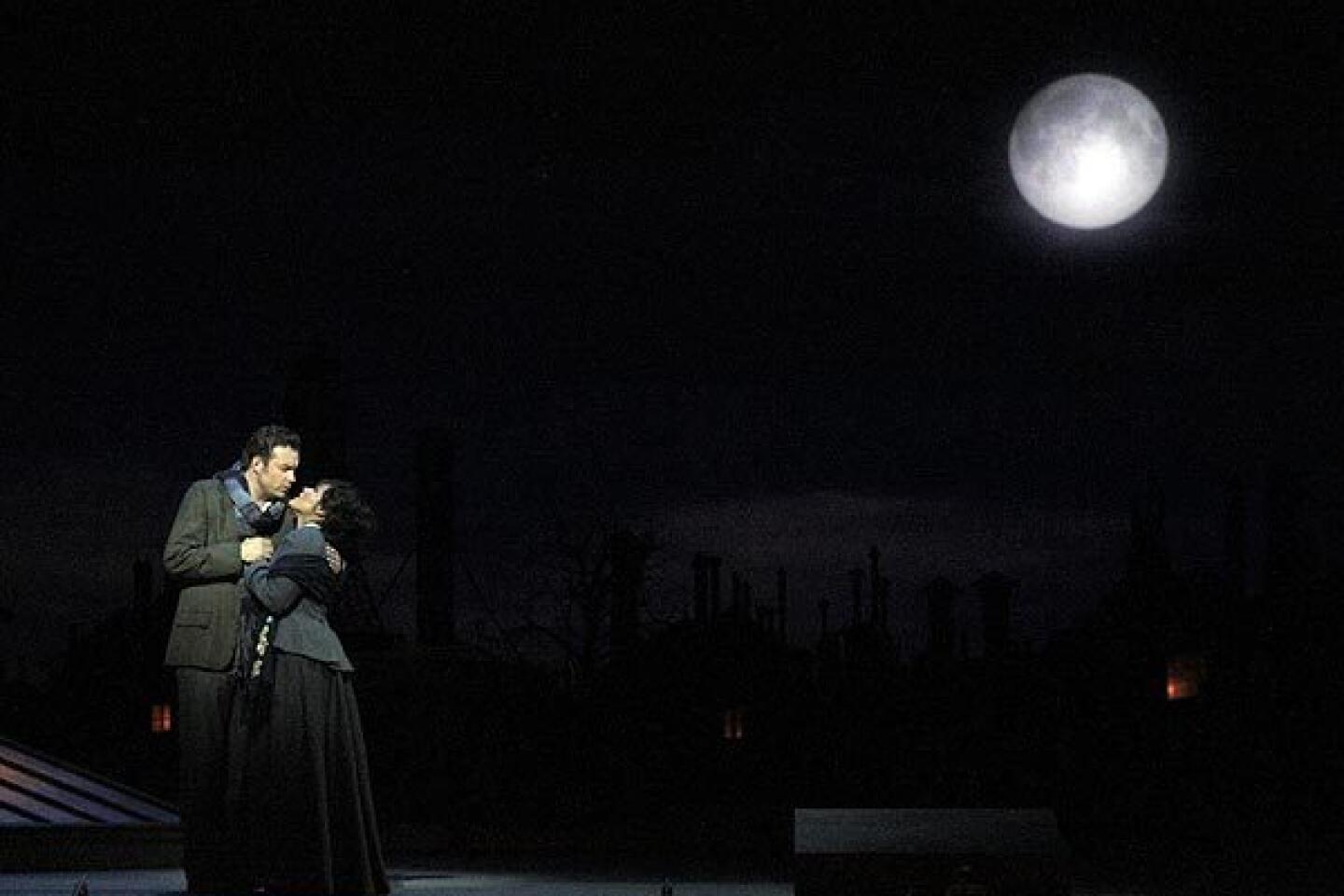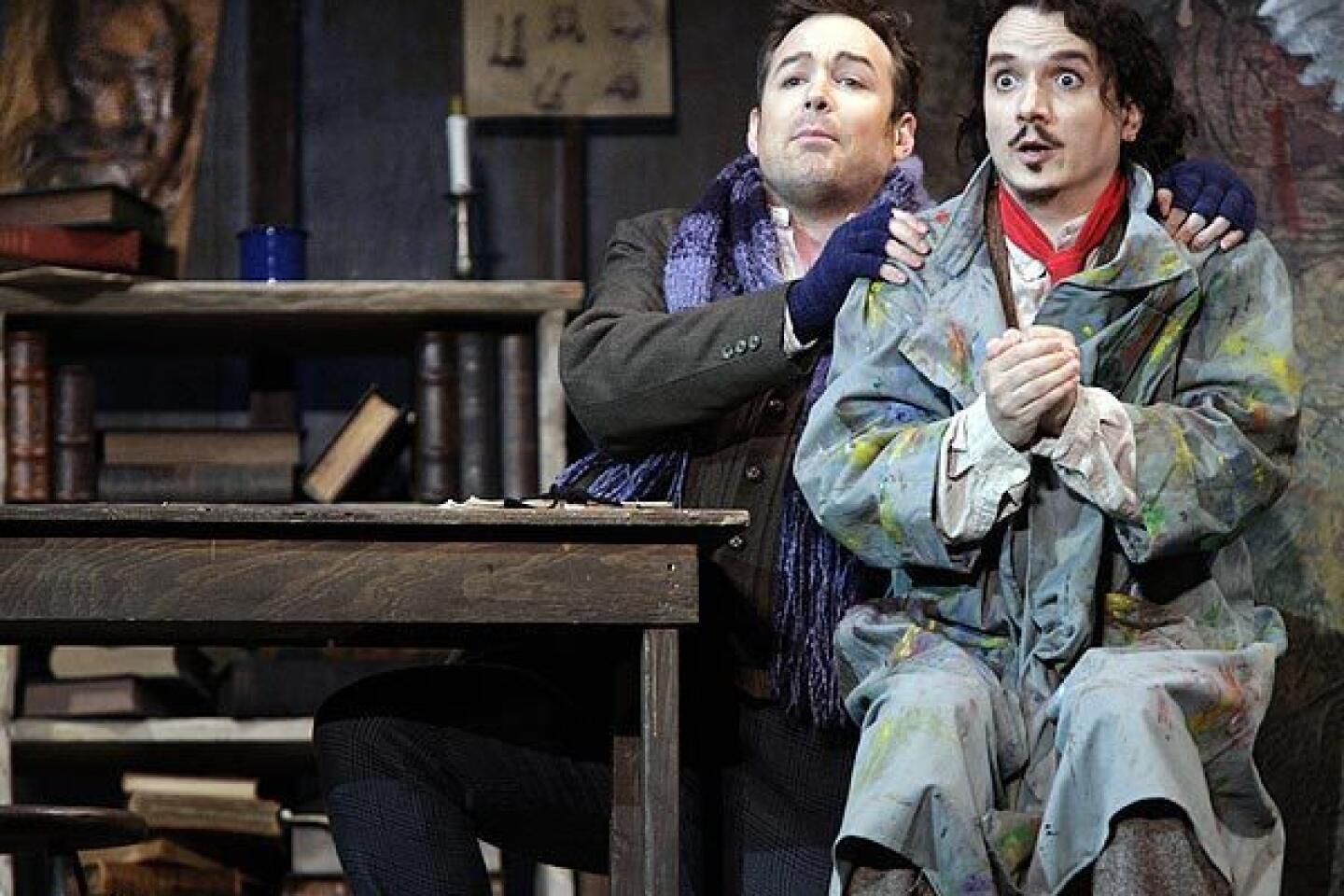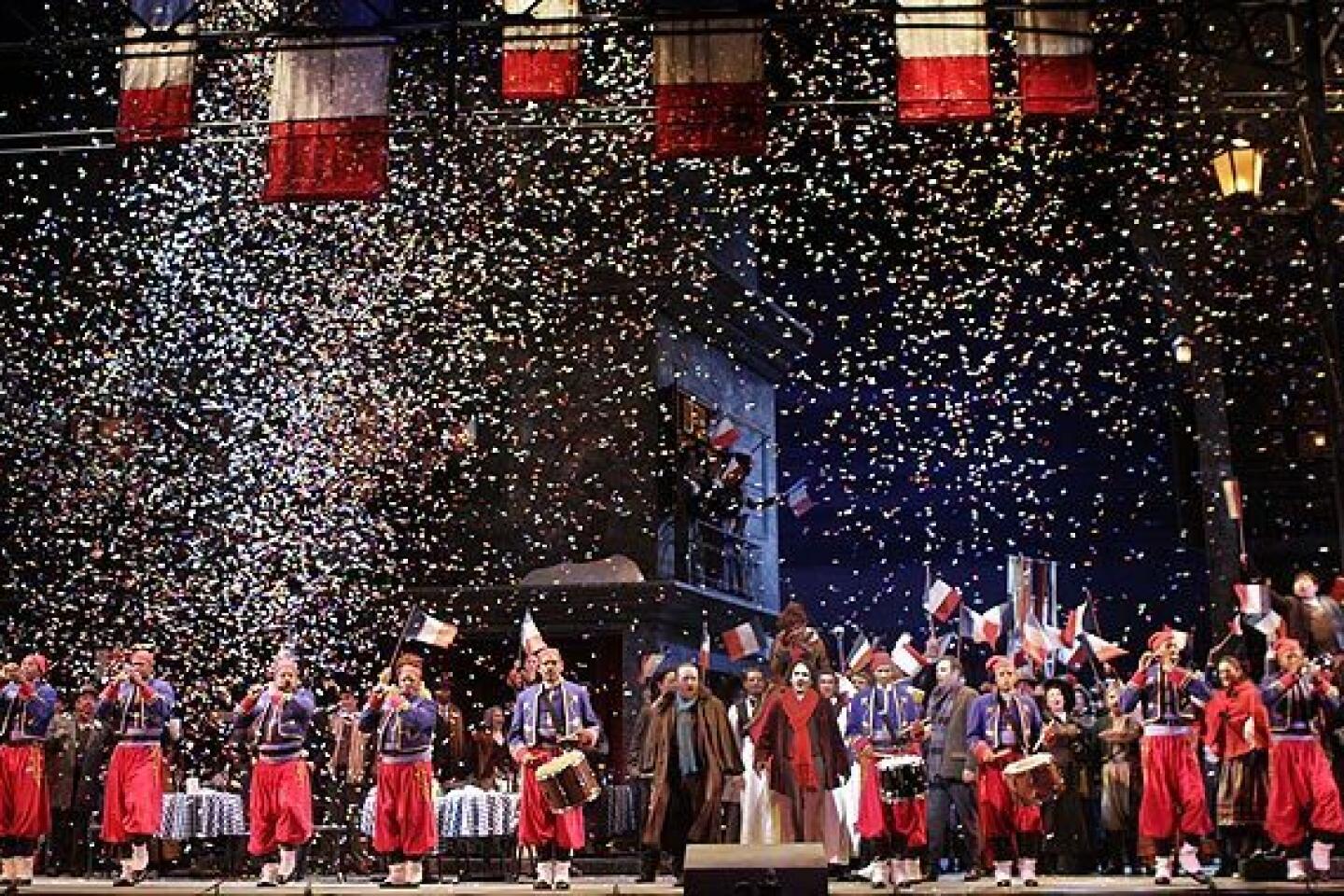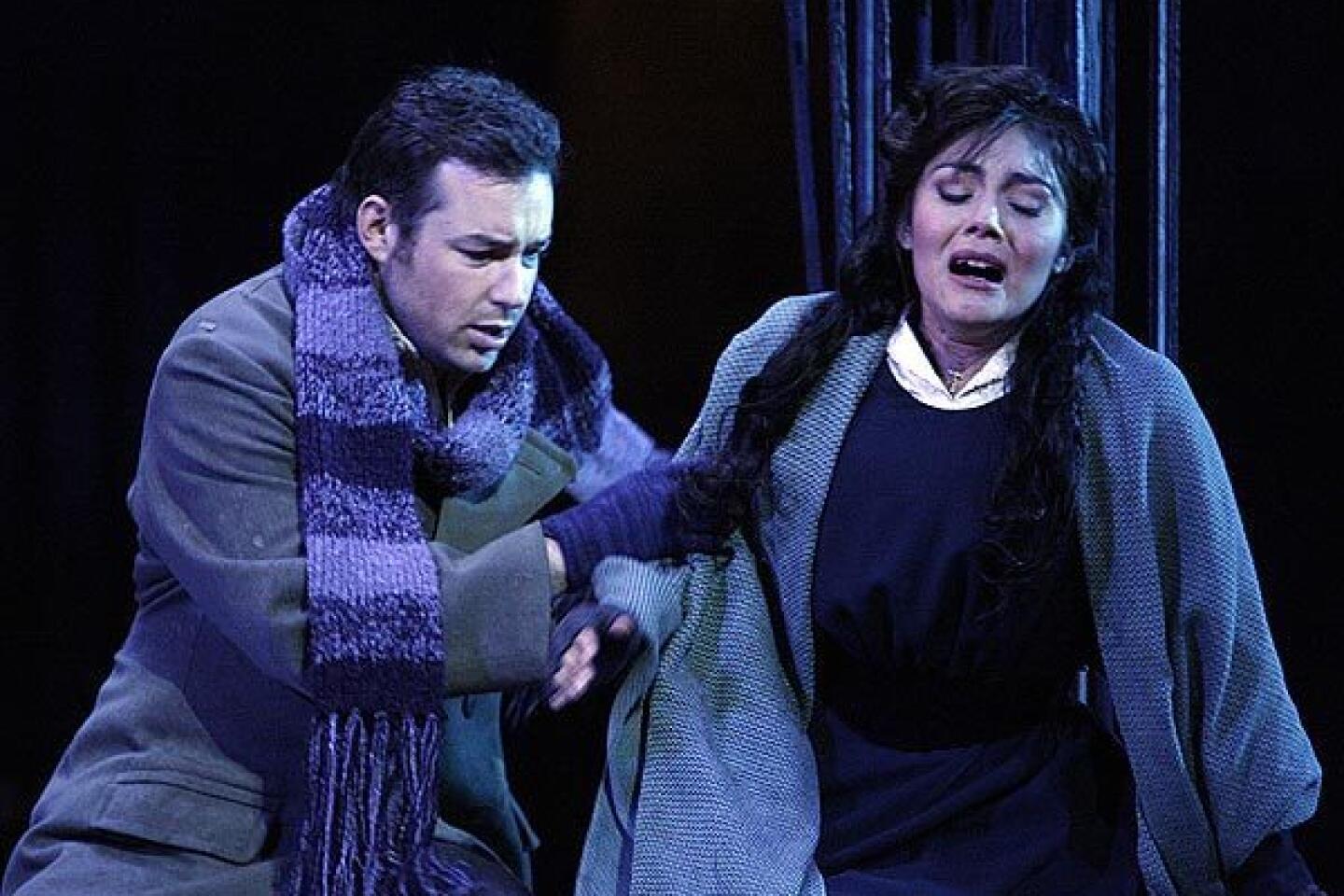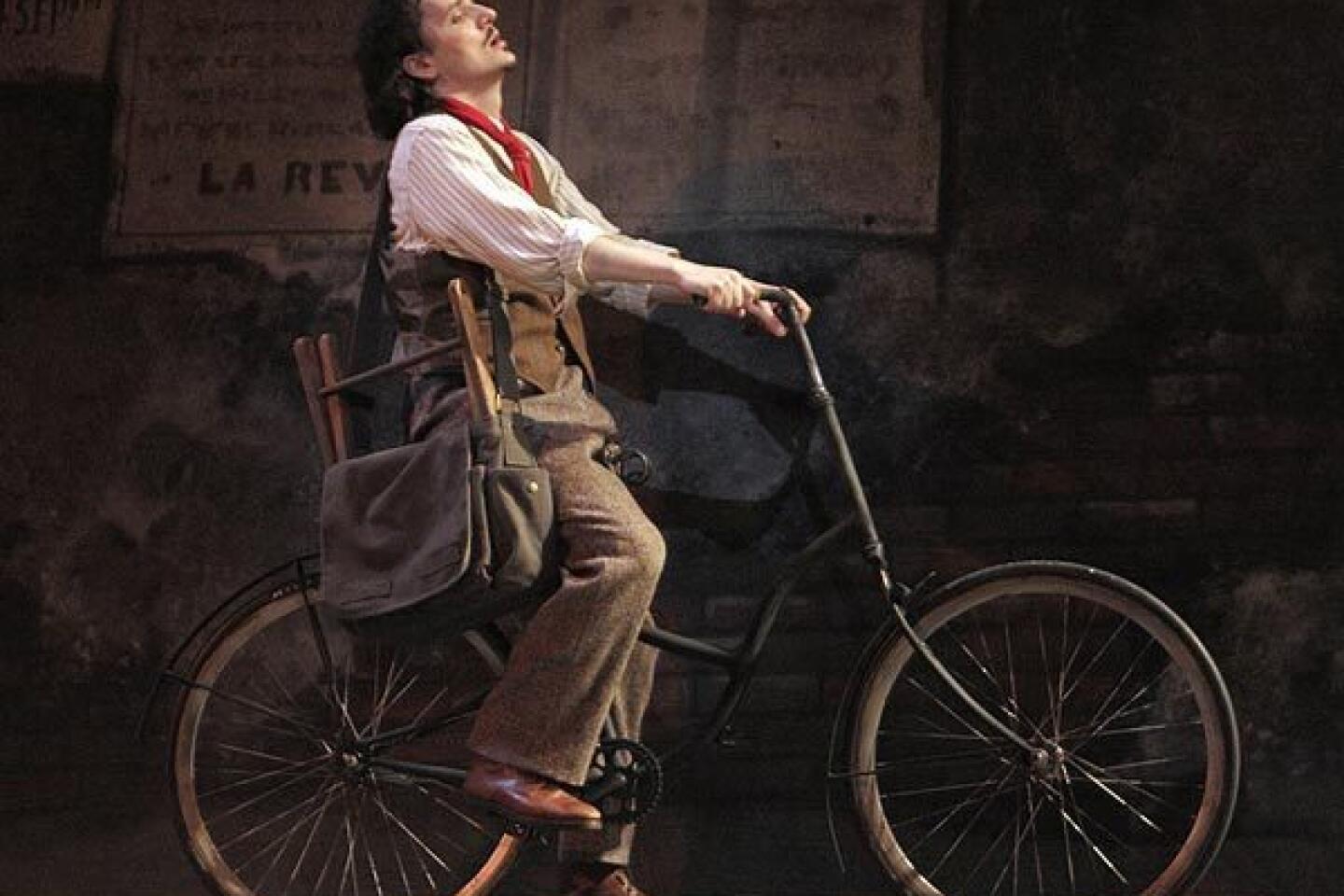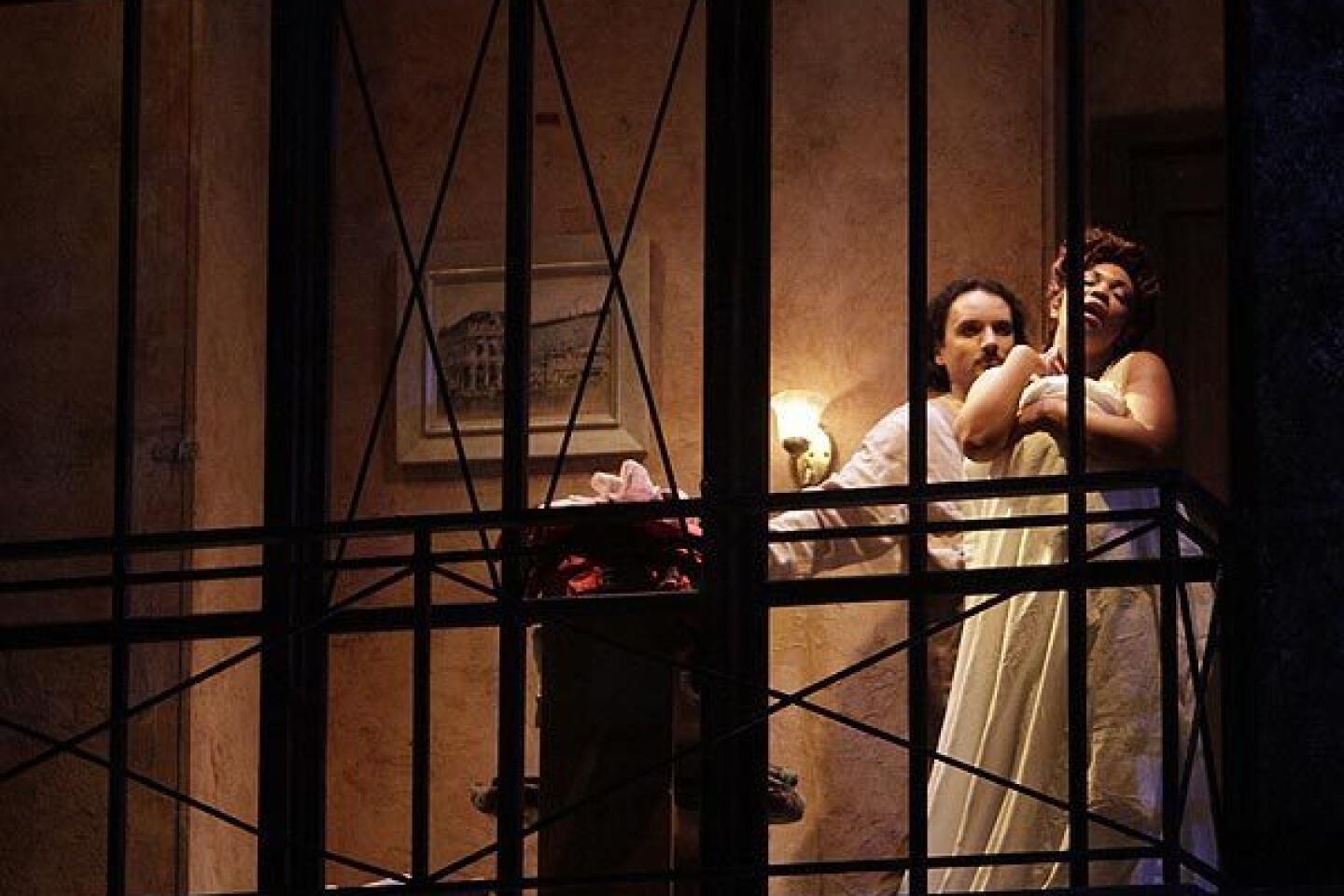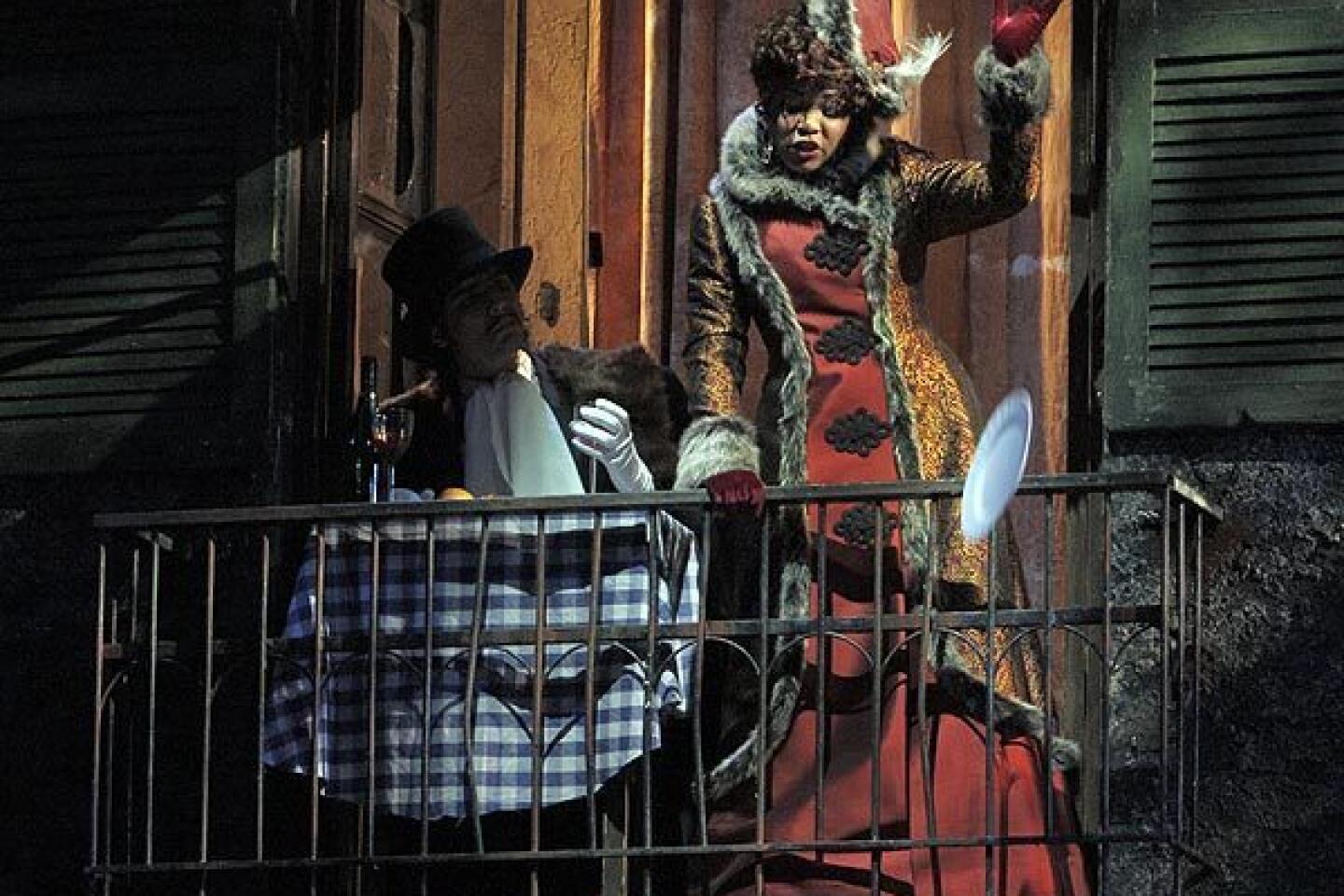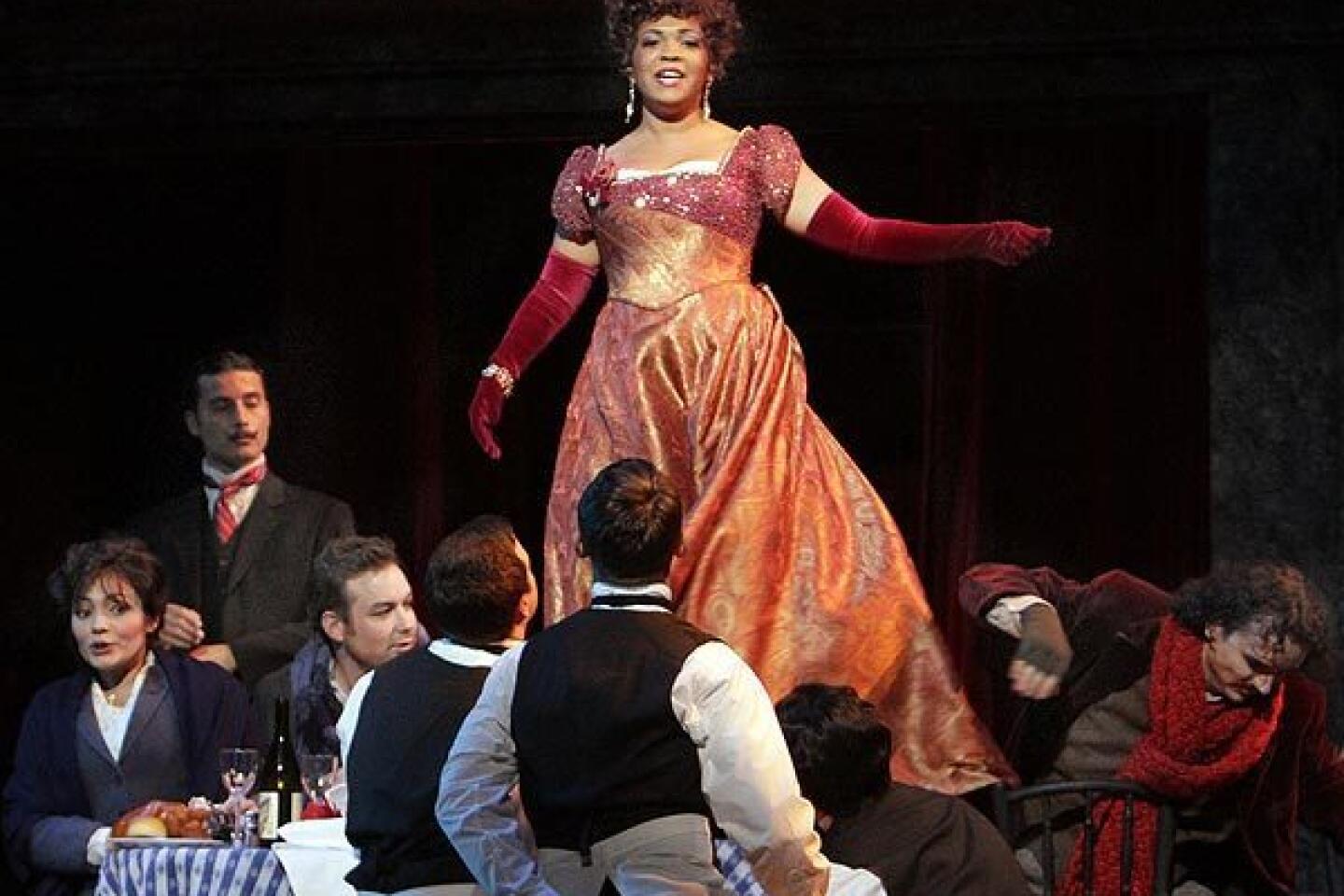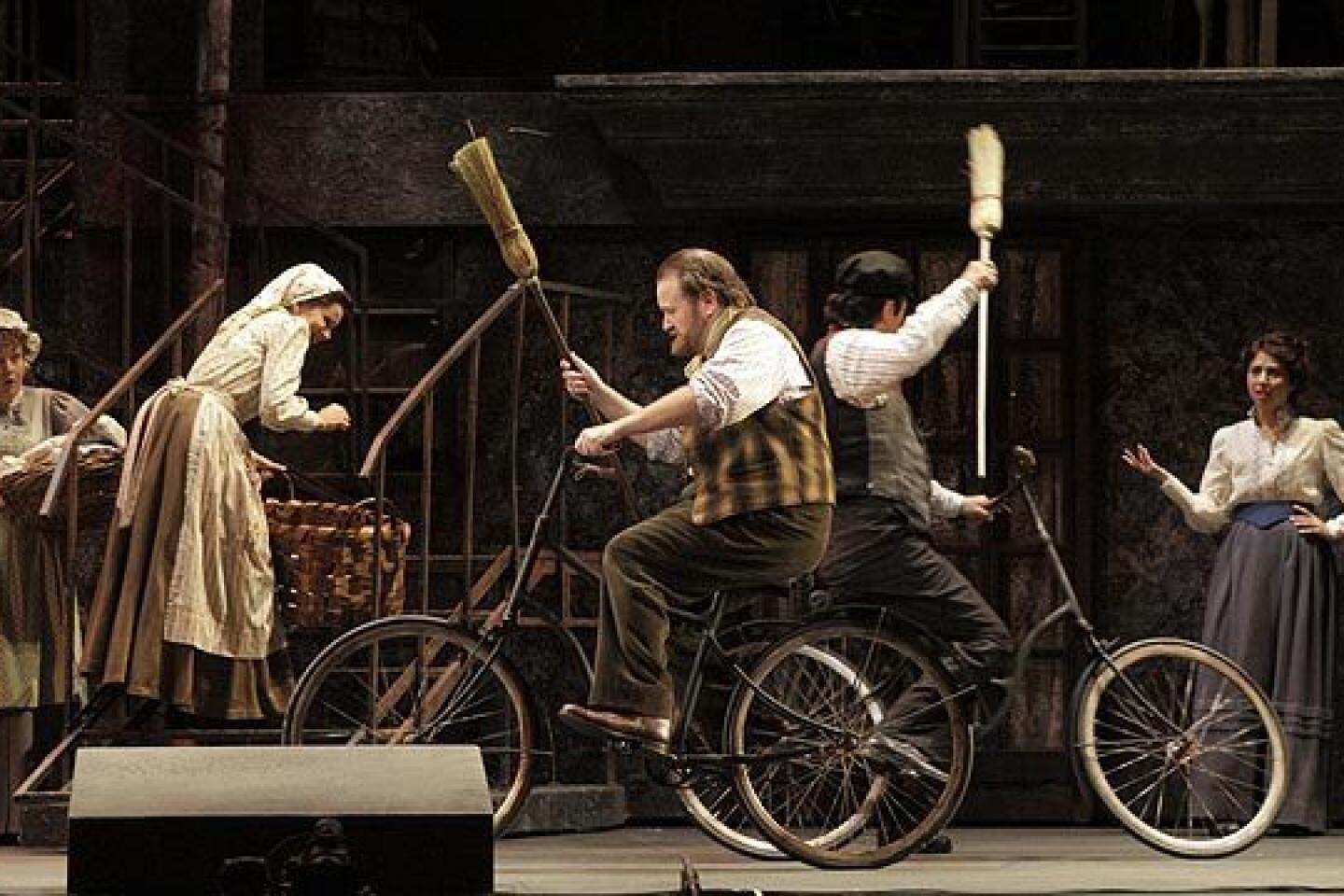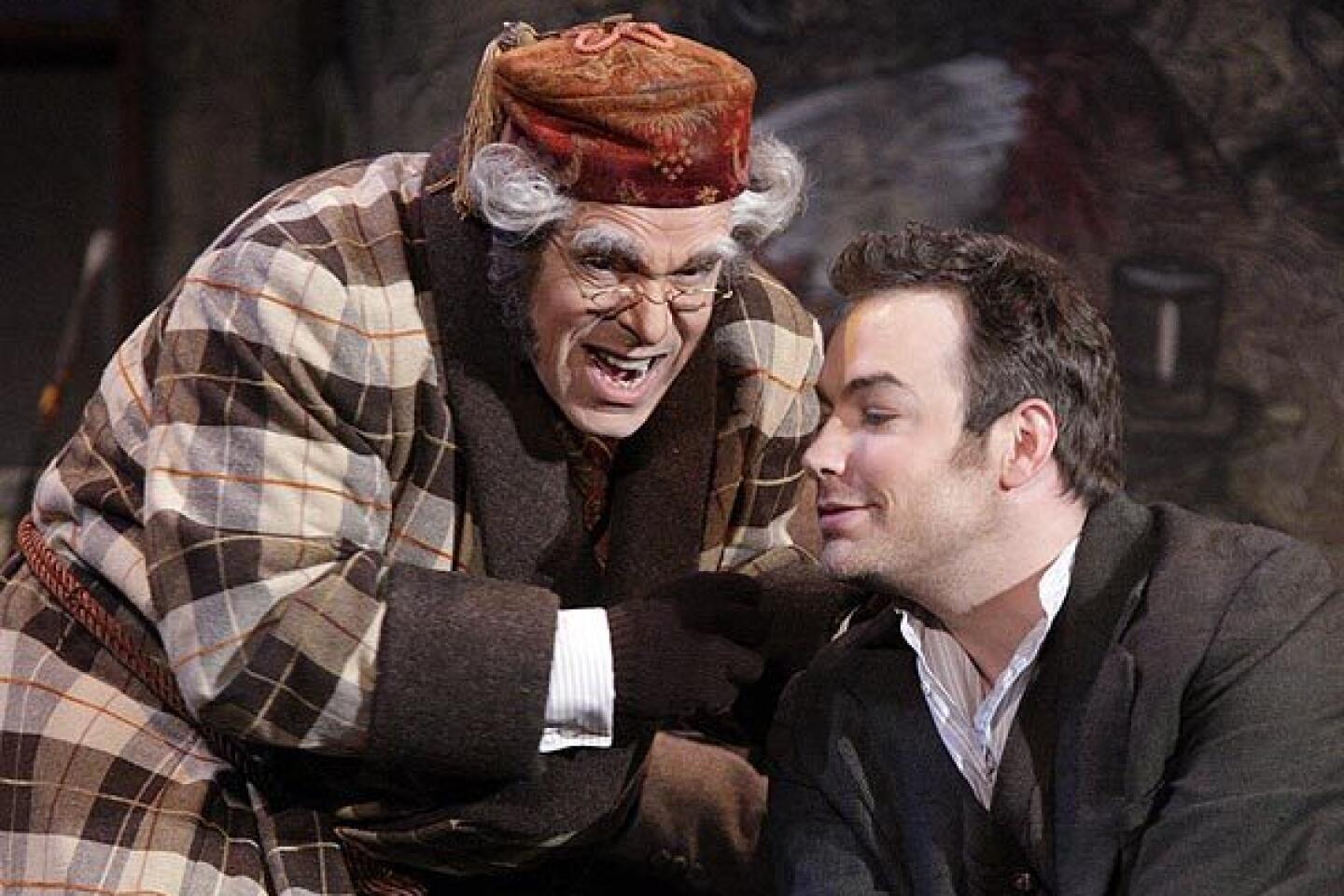Review: L.A. Opera’s ‘La Boheme’ has young cast in old production
“La Bohème” is back. So too is Los Angeles Opera’s enduring 1993 Herb Ross production.
Of course, Puccini’s endearing Bohemians are never ones to worry about wearing out their universal welcome. And Ross’ warmly cinematic staging, which gets trotted out every few years, has long proved impervious to passing opera-production fashion, at least as an audience attraction.
No, the Dorothy Chandler Pavilion wasn’t full when the curtain went up Saturday night on Act 1. But the hall was full by the time the curtain went up on Act 2. Blame an accident on the Santa Monica Freeway that added an hour to the drive from the Westside.
In fact, if you want to see this show, act fast. Most of the remaining five performances, which end the company’s season, are close to being sold out. Then again, you might not want to act too fast.
The novelty is the cast. Everyone who is supposed to be young and attractive is. But the antiquated production, for all its remaining charm, has a way of burying them. Gregory A. Fortner, who directs (Ross died a decade ago), enforces stock moves. And Patrick Summers’ conducting — sometimes railroading, other times stalling — left me scratching my head.
Soprano Ailyn Pérez and tenor Stephen Costello are being billed as “opera’s hottest couple.” Emerging singers in their early 30s, they are married and Americans. They’ve been getting good international engagements. Costello received the Richard Tucker Award in 2009; Pérez landed it this year. They’re the sympathetic lovers, the poet Rodolfo and the consumptive Mimì.
American soprano Janai Brugger and Polish baritone Artur Rucinski are the secondary pair of lovers, the painter Marcello and his flirtatious girlfriend, Musetta. Brugger has just walked away a winner of the Metropolitan Opera National Council Auditions. Rucinski has a budding career in Europe. His bio in the program notes that an Austrian publication, Festspiele, has ranked him as 18 in its idiosyncratic list of the world’s best singers. That’s probably not the best boast right now, considering that Polish baritone Mariusz Kwiecien, who stars in the Los Angeles Philharmonic’s “Don Giovanni” this week, came in at 14.
It is not difficult to take pleasure in the sound these four supple singers can make. Pérez and Costello possess full-bodied voices and enjoy letting them bloom with Italianate leisure. But neither, at least under these circumstances, was able to convey much individuality. Pérez’s Mimì was old school, very old school, melodramatic. Costello proved a well-schooled conventional Rodolfo, his tenor sure and his heart-on-sleeve emotions falling pretty much where aimed.
There was more vocal personality to Brugger, who supplied an intriguing poignancy to the often superficially treated Musetta (Valentina Fleer replaces her for the last three performances). Rucinski, a dashing Marcello, was the cutup of the cast.
Although Ross’ production is often used as a showcase for young talent, it is a poor one for that. Its appeal is for a widescreen setting and attention to historical details that capture a Paris just entering the modern age but retaining a romantic glow. That glow, though, is now mostly gone in dull lighting.
The attraction of young singing actors is moreover lost when they are loaded down with heavy period costumes, constrained to high corners of the stage or simply lost in the spectacle. For some reason, singers found themselves Saturday in places where their voices weren’t acoustically reinforced or where they were simply too far away.
The conductor can make a difference. Summers, who is artistic and music director of Houston Grand Opera and is here making his L.A. Opera debut, conducted as though he had a number of agendas. His basic style is incisive and propulsive. He catapults vividly through action. He indulges singers in their arias. And he has a welcome concern for illuminating interesting details in Puccini’s orchestral writing. These interpretive aspects, however, remained distinct and artificial seeming, not organic elements of drama.
Museop Kim (Schaunard, the musician), Robert Pomakov (Colline, the philosopher who sings an ode to his overcoat) and Philip Cokorinos (both Benoit, the hapless landlord, and Alcindoro, Musetta’s sugar daddy) all contributed to a well-oiled machine, as did the chorus, orchestra and the Los Angeles Children’s Chorus and assorted entertainers in the elaborate Café Momus scene.
Still, L.A. Opera can do better. “La Bohème” draws audiences who might not otherwise try opera. Give them the best, and maybe they’ll come back. Ross’ production has earned its keep, but no production lasts forever.
La Bohème’
Where: Dorothy Chandler Pavilion
When: 7:30 p.m. May 23, 26 and 31; 2 p.m. May 20 and June 2
Tickets: $20 to $270
Running time: 2 hours, 25 minutesMore to Read
The biggest entertainment stories
Get our big stories about Hollywood, film, television, music, arts, culture and more right in your inbox as soon as they publish.
You may occasionally receive promotional content from the Los Angeles Times.
